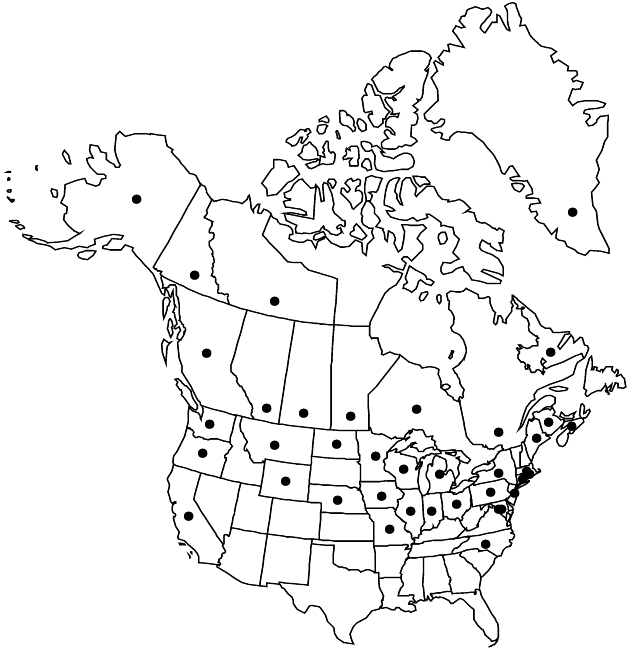Crepis tectorum
Sp. Pl. 2: 807. 1753.
Annuals, 10–100 cm (taproots shallow). Stems 1, erect (fistulose), branched distally or from bases, tomentulose and/or hispid. Leaves basal and cauline; petiolate; blades lanceolate to oblanceolate, often coarsely runcinate, 5–15 × 1–4 cm, margins entire, denticulate, or dentate to pinnately lobed (lobes remote, coarse, unequal), apices acute to acuminate, abaxial faces glabrous or tomentose, adaxial glabrous (proximal cauline sessile, bases auriculate, distal usually linear, entire). Heads 5–20(–100+), in paniculiform or corymbiform arrays. Calyculi of ± 12, subulate, tomentose and hispidulous bractlets 2–5 mm (often becoming scarious). Involucres cylindro-campanulate, 6–9 × 7–8 mm. Phyllaries 12–15, lanceolate, 5–9 mm, (bases becoming keeled and thickened, margins scarious), apices acute to attenuate (white-ciliate, tomentulose), abaxial faces tomentose to hispidulous, adaxial with fine, appressed hairs. Florets 30–70; corollas yellow (without red on ligules), 10–13 mm. Cypselae dark reddish or purplish brown, fusiform, 3–4 mm, apices constricted (not beaked), ribs 10 (rounded, minutely spiculate); pappi white (fine, soft), 4–5 mm. 2n = 8.
Phenology: Flowering May–Sep.
Habitat: Dry, sandy, pine woods, disturbed places, abandoned fields, forest clearings, wooded slopes, dry streambeds
Elevation: 100–300 m
Distribution

Introduced; Greenland, Alta., B.C., Man., N.B., Nfld. and Labr. (Labr.), N.W.T., N.S., Ont., Que., Sask., Yukon, Alaska, Calif., Conn., D.C., Ill., Ind., Iowa, Maine, Md., Mass., Mich., Minn., Mo., Mont., Nebr., N.J., N.Y., N.C., N.Dak., Ohio, Oreg., Pa., R.I., Wash., Wis., Wyo., Europe, introduced, Asia.
Discussion
Crepis tectorum is recognized by its annual habit, keeled phyllaries with minute hairs on adaxial faces, and dark reddish or purplish brown cypselae. It is widespread, often abundant, occurs in a great variety of habitats, and is considered a noxious weed in some states.
Selected References
None.